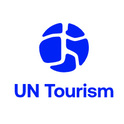“Sorrento Call to Action”: Youth to Play an Active Role in Tourism’s Future






The first Global Youth Tourism Summit concluded with the launch of the Sorrento Call to Action, a bold and ground-breaking vision for young people to be active participants in tourism’s restart and growth as a pillar of sustainable and inclusive development.
TheSorrento Call to Action was adopted on the final day of the landmark summit, during a simulation of the UNWTO General Assembly and signed by 120 participants from 57 countries and aged between 12 and 18. It was drawn up based on the discussions of a series of webinars where young participants learned and shared their thoughts on some of the key issues facing tourism right now, among them innovation and digitalization, plastic pollution and the growing relevance of sport, culture and gastronomy for destinations. The document goes beyond recognizing that the voice of youth must be consulted in policymaking and instead states that young people now need to active participants in every stage of the decision-making process across the whole of the tourism sector.
The final text was adopted with 52 favorable opinions during the simulation of a UNWTO General Assembly. The General Assembly simulation opened with high-level interventions both in person and via video messages from His Holiness Pope Francis, Italian Minister for Tourism Massimo Garavaglia, UNWTO Secretary-General Zurab Pololikashvili, Italian Minister for Foreign Affairs and International Cooperation Luigi Di Maio, Italian Minister for Youth Policies Fabiana Dadone, and the UN Envoy for Youth Jayathma Wickramanayake.
Zurab Pololikashvili, mentioned that “The Global Youth Tourism Summit is a hugely important first, for UNWTO and for our sector, and that young talent from every region will be supported to give them a stage to voice their ideas about tourism’s future.”
Massimo Garavaglia emphasized Italy as being the proud hosts of this first ever event and encouraged the young people present to become the responsible travelers of tomorrow and to keep their optimism for making their dreams a reality.
Jayathma Wickramanayake highlighted the importance of promoting the active engagement of young people as agents of transformational change, challenging the status quo, and realizing the Agenda 2030.
People, planet and prosperity
Three pillars are enshrined in the Sorrento Call to Action: People, Planet, and Prosperity. For people, for example, the young signatories call for the safeguarding of human rights, especially of persons with disabilities through adequate tourism strategies and policies. For the planet, the issues of food waste, plastic pollution, climate change mitigation, and biodiversity preservation are flagged up. Finally, for prosperity, poverty reduction, upgrading digital skills, and creating more employment opportunities are voiced by the young participants.
The Call to Action states that “decision-makers must empower the youth, providing them with opportunities to voice their concerns” while also working to it “stimulate education to ensure responsible travelers and professionals.” At the same time, it recognizes the historic significance of the first Global Youth Tourism Summit and calls on UNWTO to hold annual summits and to work with its Member States on national events.
Related Links
- The Sorrento Call to Action
- UNWTO Global Youth Tourism Summit
- Watch the GYTS - Sorrento Call to Action
About UN Tourism
The World Tourism Organization (UN Tourism) is the United Nations agency responsible for the promotion of responsible, sustainable and universally accessible tourism.
As the leading international organization in the field of tourism, UN Tourism promotes tourism as a driver of economic growth, inclusive development and environmental sustainability and offers leadership and support to the sector in advancing knowledge and tourism policies worldwide.
Our Priorities
Mainstreaming tourism in the global agenda: Advocating the value of tourism as a driver of socio-economic growth and development, its inclusion as a priority in national and international policies and the need to create a level playing field for the sector to develop and prosper.
Promoting sustainable tourism development: Supporting sustainable tourism policies and practices: policies which make optimal use of environmental resources, respect the socio-cultural authenticity of host communities and provide socio-economic benefits for all.
Fostering knowledge, education and capacity building: Supporting countries to assess and address their needs in education and training, as well as providing networks for knowledge creation and exchange.
Improving tourism competitiveness: Improving UN Tourism Members' competitiveness through knowledge creation and exchange, human resources development and the promotion of excellence in areas such as policy planning, statistics and market trends, sustainable tourism development, marketing and promotion, product development and risk and crisis management.
Advancing tourism's contribution to poverty reduction and development: Maximizing the contribution of tourism to poverty reduction and achieving the SDGs by making tourism work as a tool for development and promoting the inclusion of tourism in the development agenda.
Building partnerships: Engaging with the private sector, regional and local tourism organizations, academia and research institutions, civil society and the UN system to build a more sustainable, responsible and competitive tourism sector.
Our Structure
Members: An intergovernmental organization, UN Tourism has 160 Member States, 6 Associate Members, 2 Observers and over 500 Affiliate Members.
Organs: The General Assembly is the supreme organ of the Organization. The Executive Council take all measures, in consultation with the Secretary-General, for the implementation of the decisions and recommendations of the General Assembly and reports to the Assembly.
Secretariat: UN Tourism headquarters are based in Madrid, Spain. The Secretariat is led by the Secretary-General and organized into departments covering issues such as sustainability, education, tourism trends and marketing, sustainable development, statistics and the Tourism Satellite Account (TSA), destination management, ethics and risk and crisis management. The Technical Cooperation and Silk Road Department carries out development projects in over 100 countries worldwide, while the Regional Departments for Africa, the Americas, Asia and the Pacific, Europe and the Middle East serve as the link between UN Tourism and its 160 Member States. The Affiliate Members Department represents UN Tourism's 500 plus Affiliate members.
UN Tourism Communications Department
+34 91 567 8100
UN Tourism
